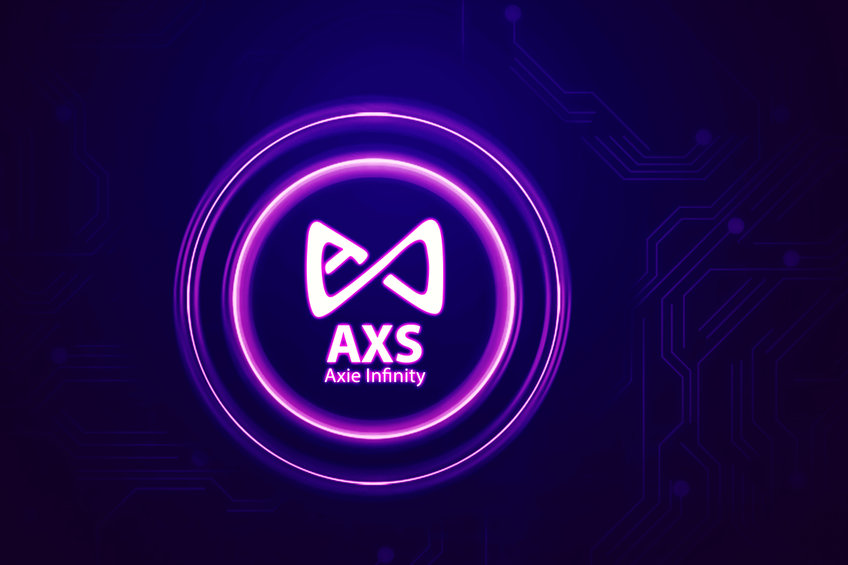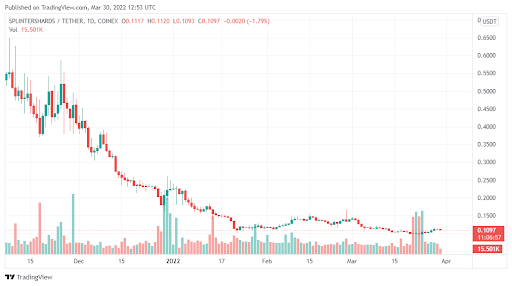
The play-to-earn space of the blockchain ecosystem has seen immense growth over the last few months. In fact, Axie Infinity, which is one of the main projects in play-to-earn, saw massive gains in 2021. Here is why play-to-earn will continue to grow:
-
There is increased integration of blockchain gaming with the metaverse
-
Play-to-earn has also seen increased NFT integration as well.
-
We are likely to see increased institutional capital towards play-to-earn.
So, if you want solid Axie Infinity alternatives, here are the top 3 coins that you consider in the meantime.
Splinterlands (SPS)
Splinterlands (SPS) is largely a collectible card game that involves rapid battles between users as well. In essence, players will get the chance to build a unique collection of cards, each backed by NFTs. They will then try to battle each other in a wide range of skill-based games where winners earn rewards.
 Data Source: Tradingview
Data Source: Tradingview
It is also possible to buy and sell collectibles within the Splinterlands universe. The native and governance token for the game is called Splintershards, and its current market cap is around $65 million. This suggests it has the potential to go further.
Battle of Guardians (BGS)
Developed by Unreal Engine, Battle of Guardians (BGS) is a multiplayer NFT powered fighting game. It has multi chain capabilities as well since users can access it either via the Binance Smart Chain or Solana. The game offers a truly immersive experience and is one of the most exciting play-to-earn projects in the market right now.
CryptoKitties (WCK)
CryptoKitties (WCK) is a blockchain based game that lets users collect and breed cute digital kitties. All these kitties are backed by NFTs as well. The game has a dedicated catalogue where players can also view and buy kitties that they want. CryptoKitties was released in 2017, and while it was slower to hit the ground running compared to Axie, it has since managed to gain a huge following.
The post Top 3 crypto alternatives for Axie Infinity you can consider right now appeared first on Coin Journal.




